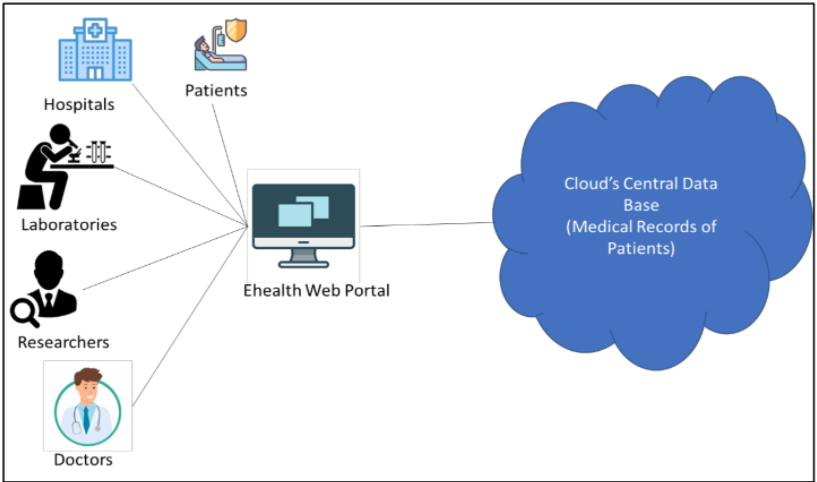Difference between revisions of "Template:Article of the week"
Shawndouglas (talk | contribs) (Updated article of the week text) |
Shawndouglas (talk | contribs) (Updated article of the week text) |
||
| Line 1: | Line 1: | ||
<div style="float: left; margin: 0.5em 0.9em 0.4em 0em;">[[File: | <div style="float: left; margin: 0.5em 0.9em 0.4em 0em;">[[File:Fig2 Sivan Symmetry21 13-5.png|240px]]</div> | ||
'''"[[Journal: | '''"[[Journal:Security and privacy in cloud-based eHealth systems|Security and privacy in cloud-based eHealth systems]]"''' | ||
[[Cloud computing|Cloud-based]] healthcare computing has changed the face of healthcare in many ways. The main advantages of cloud computing in healthcare are scalability of the required service and the provision to upscale or downsize the data storge, particularly in conjunction with approaches to [[artificial intelligence]] (AI) and [[machine learning]]. This paper examines various research studies to explore the utilization of intelligent techniques in health systems and mainly focuses on the [[Information security|security]] and [[Information privacy|privacy]] issues in the current technologies. Despite the various benefits related to cloud computing applications for healthcare, there are different types of management, technology handling, security measures, and legal issues to be considered and addressed. The key focus of this paper is to address the increased demand for cloud computing and its definition, technologies widely used in healthcare, their problems and possibilities, and the way protection mechanisms are organized and prepared when the company chooses to implement the latest evolving service model. ('''[[Journal:Security and privacy in cloud-based eHealth systems|Full article...]]''')<br /> | |||
<br /> | <br /> | ||
''Recently featured'': | ''Recently featured'': | ||
{{flowlist | | {{flowlist | | ||
* [[Journal:Using interactive digital notebooks for bioscience and informatics education|Using interactive digital notebooks for bioscience and informatics education]] | |||
* [[LII:The Application of Informatics to Scientific Work: Laboratory Informatics for Newbies|The Application of Informatics to Scientific Work: Laboratory Informatics for Newbies]] | * [[LII:The Application of Informatics to Scientific Work: Laboratory Informatics for Newbies|The Application of Informatics to Scientific Work: Laboratory Informatics for Newbies]] | ||
* [[Journal:Blockchain-based healthcare workflow for IoT-connected laboratories in federated hospital clouds|Blockchain-based healthcare workflow for IoT-connected laboratories in federated hospital clouds]] | * [[Journal:Blockchain-based healthcare workflow for IoT-connected laboratories in federated hospital clouds|Blockchain-based healthcare workflow for IoT-connected laboratories in federated hospital clouds]] | ||
}} | }} | ||
Revision as of 16:24, 14 March 2022
"Security and privacy in cloud-based eHealth systems"
Cloud-based healthcare computing has changed the face of healthcare in many ways. The main advantages of cloud computing in healthcare are scalability of the required service and the provision to upscale or downsize the data storge, particularly in conjunction with approaches to artificial intelligence (AI) and machine learning. This paper examines various research studies to explore the utilization of intelligent techniques in health systems and mainly focuses on the security and privacy issues in the current technologies. Despite the various benefits related to cloud computing applications for healthcare, there are different types of management, technology handling, security measures, and legal issues to be considered and addressed. The key focus of this paper is to address the increased demand for cloud computing and its definition, technologies widely used in healthcare, their problems and possibilities, and the way protection mechanisms are organized and prepared when the company chooses to implement the latest evolving service model. (Full article...)
Recently featured:










